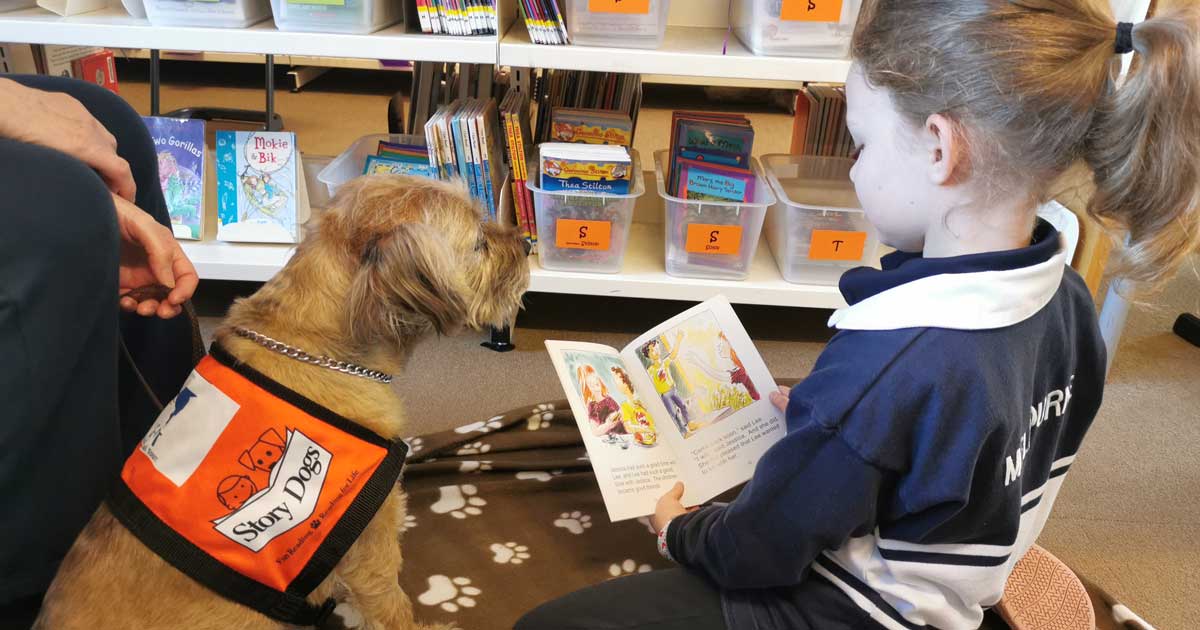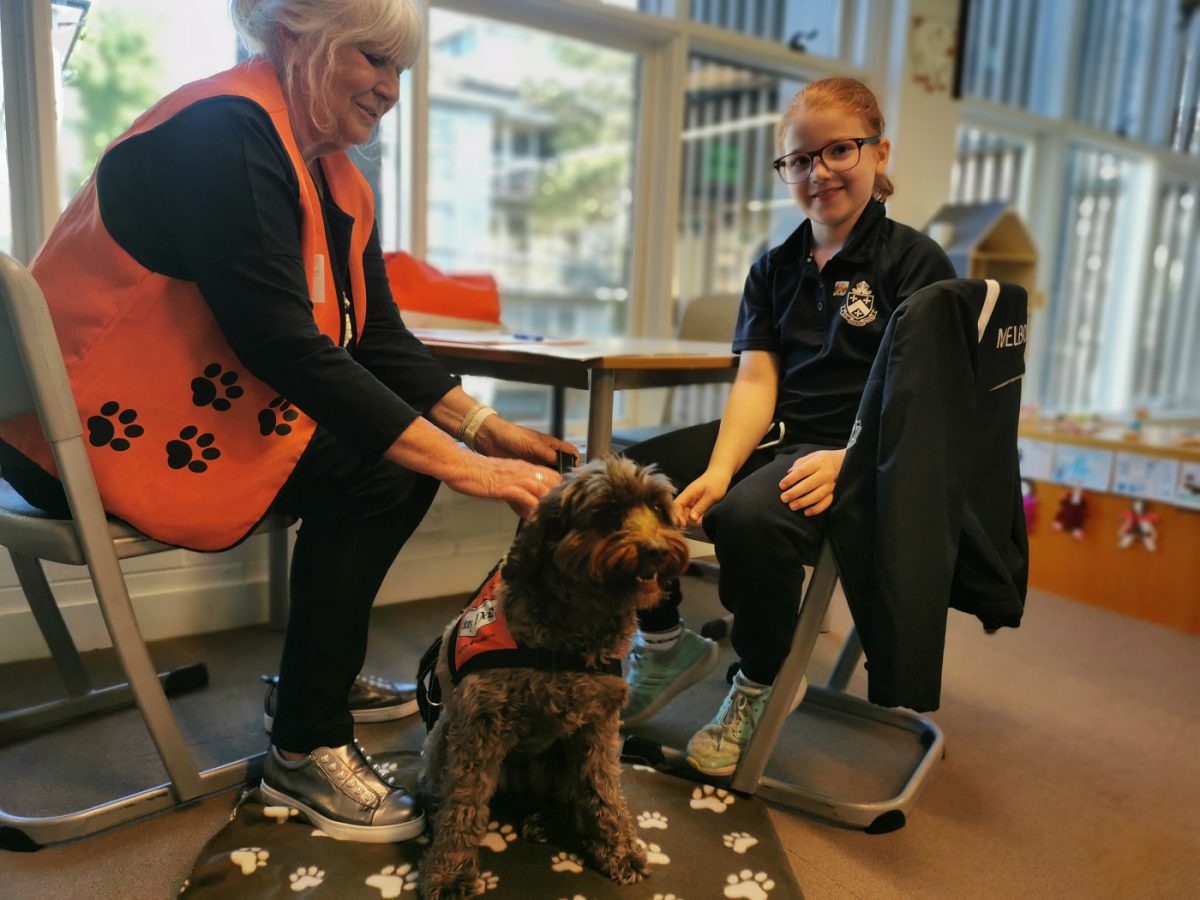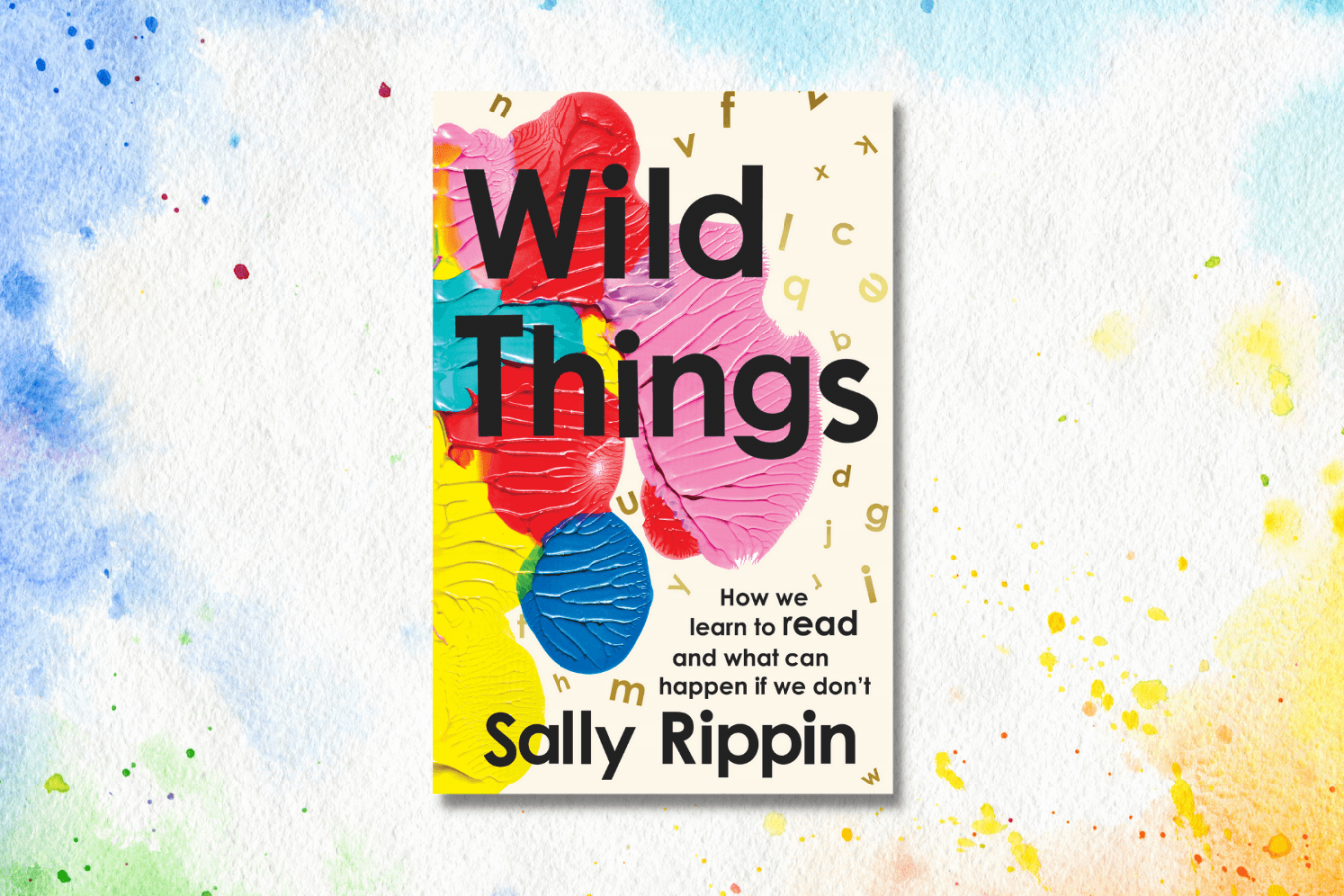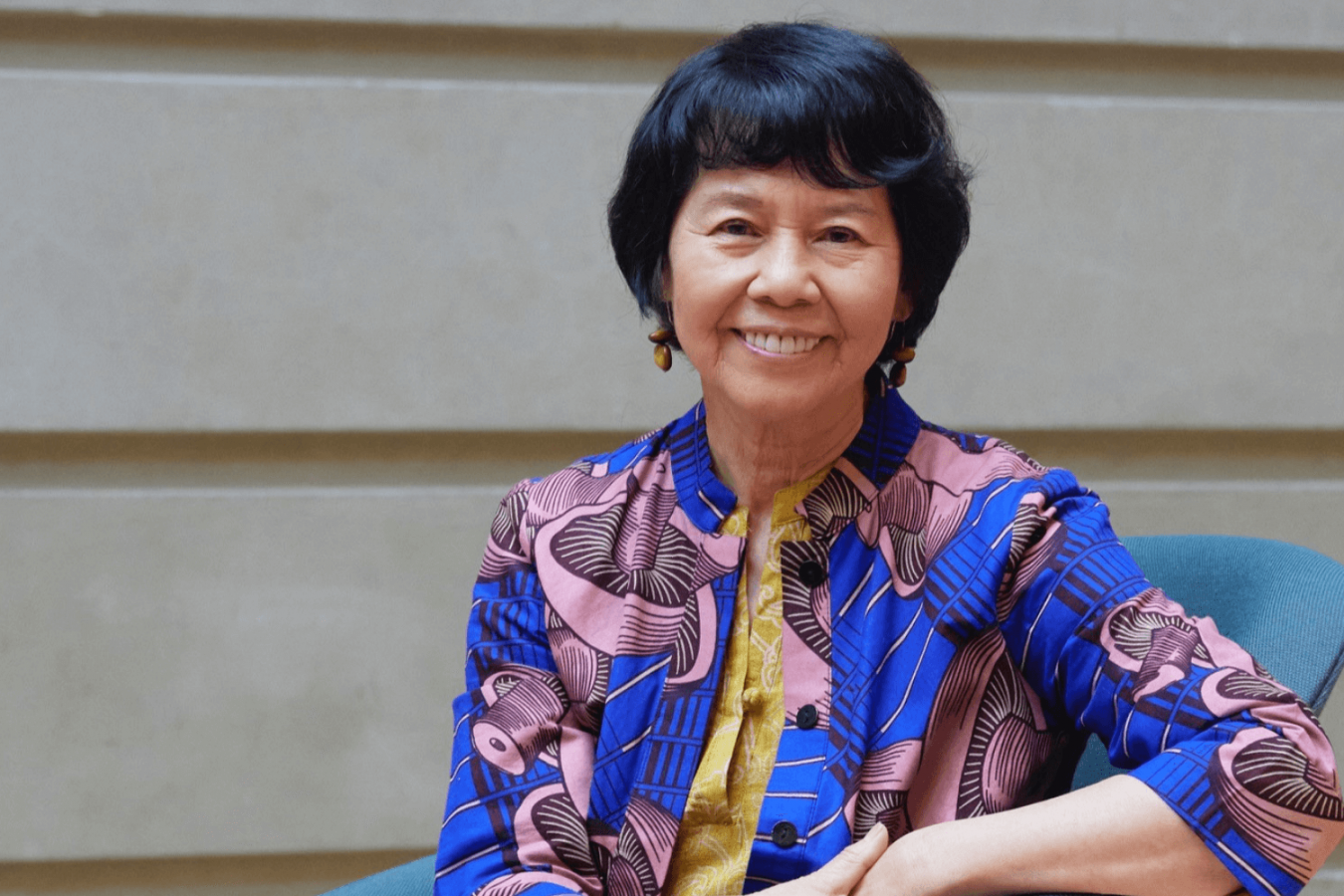
They're good listeners, attentive and don't judge. Find out how dogs are helping young students with reading - and much more.
It’s Tuesday morning at Melbourne Girls Grammar School, and Evie and Roger are listening intently as their Year 2 and 3 girls read out loud to them.
The regular session is eagerly anticipated by the students, explained by the fact that Evie and Roger are friendly and always encouraging.
And furry. Evie, a miniature labradoodle, and Roger, a border terrier, are Story Dogs, part of a literacy program that is helping young students across Australia develop their reading, and their confidence.
‘You get to read to them and they really listen,’ says Ava from Year 2. ‘It feels like they can read.’
Based on a program in the United States, Story Dogs was founded in Australia in 2012. The concept is simple and appealing. In a quiet space in a classroom or library, the student reads aloud to a dog and its handler.
The Story Dogs don’t judge. They are ready, calm and loving listeners who make the children feel at ease.
Each week, the program helps more than 2550 children across Australia, who read to 510 Story Dog teams, in schools from each sector – Independent, Government and Catholic.
Megan Morgan, the Melbourne Central coordinator for Story Dogs, says the program works so well because the dogs are non-critical. ‘They listen. The children feel confident,’ says Megan. ‘And the dogs are incredibly sensitive – knowing how close they need to snuggle up to a particular child.
‘If a child is nervous of dogs, the dog tends to keep their distance. We had one little boy at one school who had some pretty severe problems, and the dog used to actually lie along that child. He didn’t do it with his other three kids, just this one.’
Megan began as a volunteer with her dog, Ooona, a 12-year-old brown standard poodle. There’s no restriction on the age of the dogs, and some also have a disability, such as one that its totally blind, another with only three paws.
‘It’s good for the kids,’ says Megan. ‘It means that they see you don’t have to be perfect to do a job in the community.’
The dogs also seem to get a lot out of the experience. All Megan has to say is, ‘It’s Story Dog Day!’ when she gets Story Dog orange vest out, and Oona does a little dance.
More than just reading
The Story Dog program has an impact extending well beyond producing confident readers.
Like the two little boys at one school Megan and her dog attend who teachers couldn’t get into a library. They’ve now become devoted readers. They also went on a play date, where they went to a bookshop and bought books.
Becky Glenton, Assistant Director of the Junior School at Melbourne Girls Grammar, tells of one student with additional needs, who doesn’t speak to adults. After a few months with the Story Dogs, she started reading aloud to the dog. This was a moment of joy for everyone, and an incredible development.
The Story Dogs have been at the school for three years. Becky says the dogs can help if a girl lacks confidence or needs a bit of extra support with reading. ‘We know that reading regularly is beneficial for beginning readers. This program gives the girls additional opportunities to read aloud to the dogs whilst being supported by an adult, and then to discuss the book that they’re reading,’ she says.
Beyond being involved in the program, the school has got behind the charity to help raise funds. Sponsorship of the dogs is critical. Owners and dogs have to undertake training and testing, which covers areas such as child safety and what to do in an emergency. Then there’s other items such as insurance and buying books.
On Story Dog fundraising day, the girls raised close to $600 – enough to sponsor a dog for a year, allowing children in other schools to benefit from this program. The girls wore something orange, the Story Dog colour, with a movie fund-raiser with popcorn at lunchtime. And the movie? 101 Dalmatians, of course.
To find out more, please visit the Story Dogs website.



